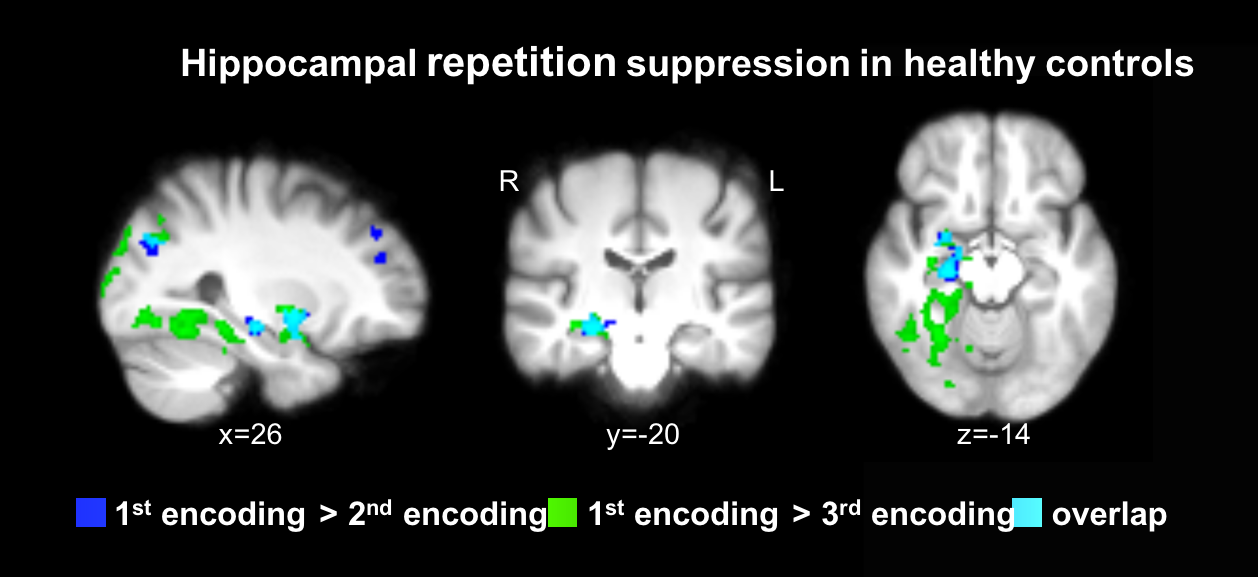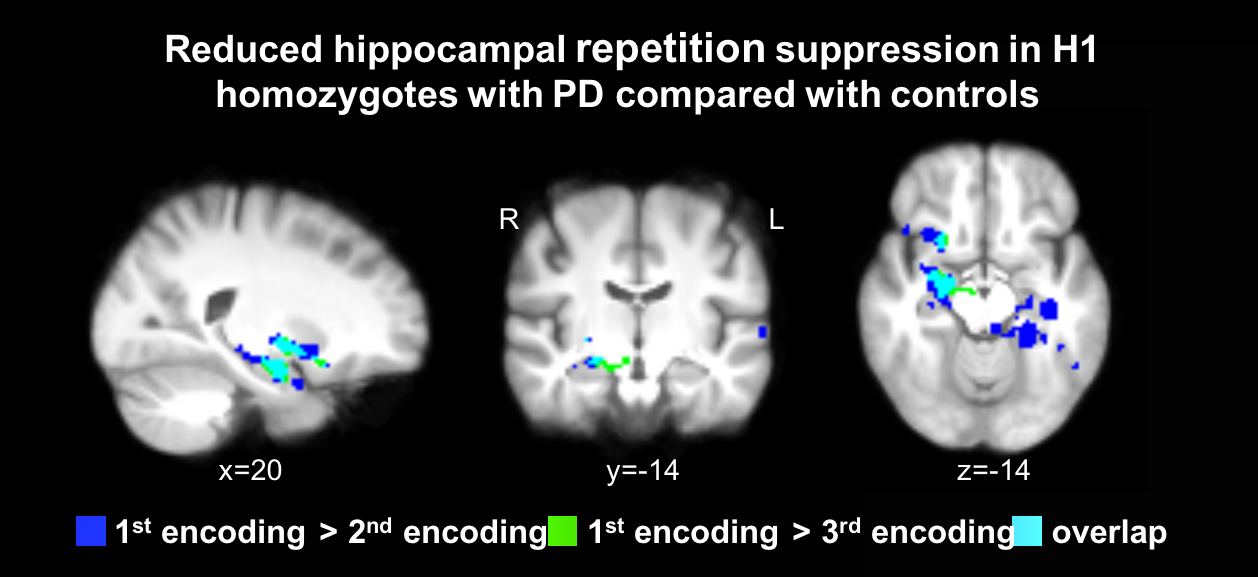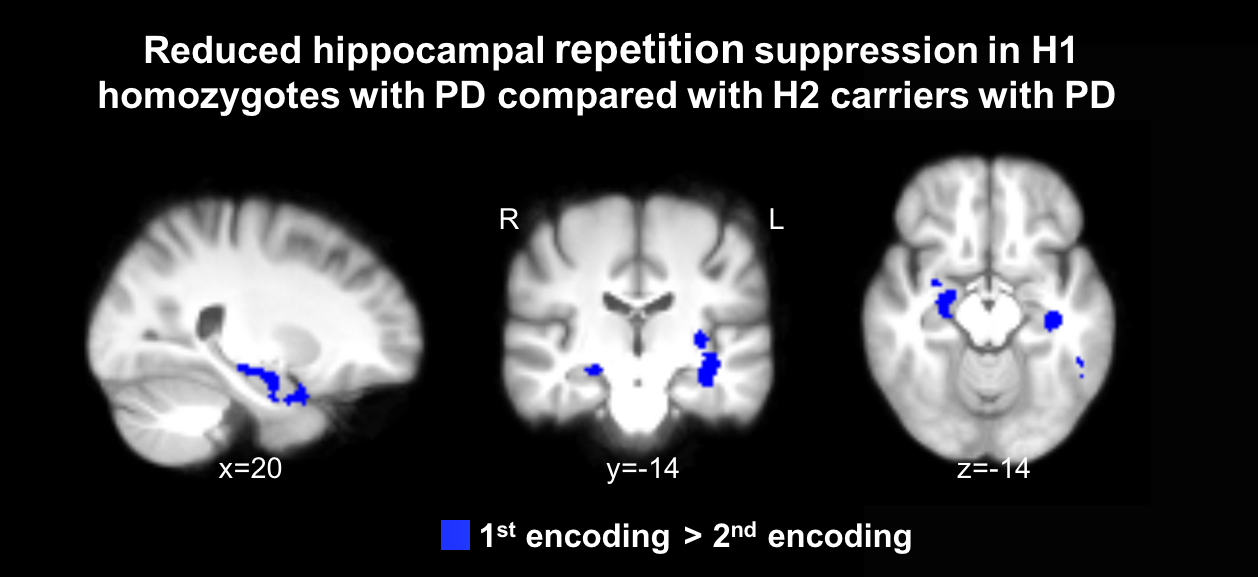Session Information
Date: Monday, October 8, 2018
Session Title: Parkinson's Disease: Neuroimaging And Neurophysiology
Session Time: 1:15pm-2:45pm
Location: Hall 3FG
Objective: We aimed to explore the relationship between the microtubule-associated tau gene (MAPT) haplotypes and response in the hippocampus to repeated stimuli in Parkinson’s disease (PD).
Background: Emerging evidence suggests that MAPT H1 haplotype influences an accelerated rate of cognitive decline and risk of dementia in PD. Particularly, the H1 homozygotes in PD have shown impairments in memory encoding and visuospatial function that implicate posterior cortical dysfunction in PD. To increase our understanding of the mechanisms behind this susceptibility, we assessed whether MAPT haplotype might be associated with the hippocampal function in memory, using the decrease in hippocampal activity previously reported in controls during repetition memory encoding.
Methods: Eighteen PD patients without dementia (8 H1/H1, 10 H2 carriers) and 19 age-matched controls were scanned during performance of a face-scene association memory task. The experiment consisted of two encoding runs alternating with two retrieval runs. During one encoding run, each of the 16 face-scene pairs were repeated three times. To investigate repetition-related changes during encoding, the first-level analysis consisted of three explanatory variables (number of repetition) and three contrasts comparing each repetition trial. Group comparisons were performed with mixed-effects GLM models.
Results: Controls made more correct responses than PD patients during retrieval session (p=0.01, controls, 90.3 ± 7.0%; PD, 81.8 ± 10.1%) but, there was no difference between H1 homozygotes and H2 carriers among PD patients. We found a significant decrease of activation in the hippocampus in the 2nd and 3rd encoding trials compared to the 1st trial in controls [figure1]. However, in PD patients, both H1 homozygotes and H2 carriers did not show significantly decreased activation with repetition. Moreover, decreased activation in the hippocampus with increased number of repetition was significantly less in H1 homozygotes compared to both controls [figure2] and H2 carriers [figure3].
Conclusions: Reduction of hippocampal activity to repeated stimuli was impaired in H1 homozygotes with PD compared to not only controls but also H2 carriers with PD. These preliminary results support the previous reports of the effect of MAPT haplotype on cognitive impairment in PD, and specifically suggest that the MAPT H1/H1 genotype is associated with hippocampal function in PD.
To cite this abstract in AMA style:
E. Yoon, T. Alrazi, M. Ramezani, I. Kathol, J. Sarna, T. Hammer, L. Derwent, J. Cheetham, Z. Gan-Or, G. Rouleau, O. Monchi. Association between MAPT haplotype and hippocampal repetition suppression in Parkinson’s disease [abstract]. Mov Disord. 2018; 33 (suppl 2). https://www.mdsabstracts.org/abstract/association-between-mapt-haplotype-and-hippocampal-repetition-suppression-in-parkinsons-disease/. Accessed April 20, 2025.« Back to 2018 International Congress
MDS Abstracts - https://www.mdsabstracts.org/abstract/association-between-mapt-haplotype-and-hippocampal-repetition-suppression-in-parkinsons-disease/



